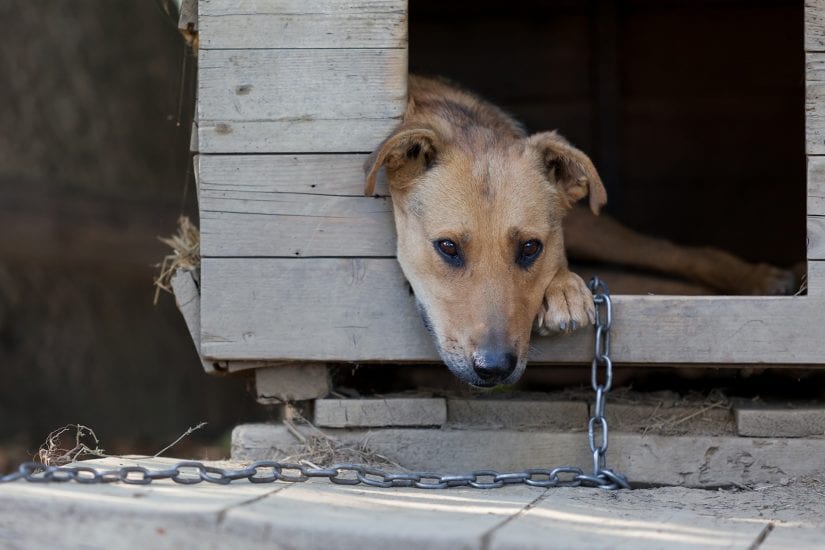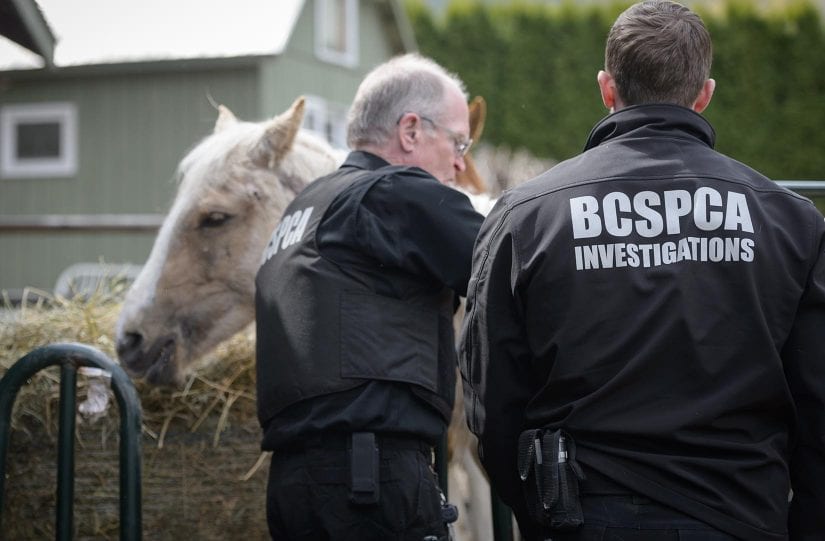If you’re concerned that an animal may be in distress, call us. Your actions could help save an animal, and you may also be protecting children or adults at risk of being harmed.
To report an animal in distress (farm animals, domestic animals and wildlife), please call the BC SPCA Animal Helpline: 1-855-622-7722, open 8:00 a.m. to 6:00 p.m., seven days per week. Closed on Statutory holidays except for wildlife calls in the South Vancouver Island Region (Wild ARC) from 8 to 4:30 p.m.
If this is an animal emergency outside of these hours, please contact your local police department , RCMP or the Conservation Officer Service (RAPP).

How the BC SPCA can help animals in distress
Our Animal Protection Officers respond to all complaints of animal cruelty and neglect, and can get involved whenever any animal, with the exception of species at risk or wildlife that are not in captivity, is found in distress. In severe cases, they may seize animals and recommend animal cruelty charges.

How to recognize an animal in distress
An animal is in distress, according to the Prevention of Cruelty to Animals Act (PCA Act), if it is:
(a) Deprived of adequate food, water, shelter, ventilation, light, space, exercise, care or veterinary treatment,
(a.1) Kept in conditions that are unsanitary,
(a.2) Not protected from excessive heat or cold,
(b) Injured, sick, in pain or suffering, or
(a.2) Not protected from excessive heat or cold,
(b) Injured, sick, in pain or suffering, or
(c) Abused or neglected.
The following examples may help you to recognize signs that an animal is in distress and needs help. Warning: graphic photos are included and viewer discretion is advised.
- Thin and emaciated: Extremely thin, rib bones and hip bones are visible. This could indicate starvation or illness. Photo Example – caution: graphic
- Little to no access to shelter, food or water: All companion, farm and captive wildlife should have access to food, water and shelter from the elements.
- Wounded or injured: May have an obvious wound or be limping, or a guardian physically abusing an animal by hitting or kicking.
- Coat in poor condition: Could indicate a flea or tick infestation. – Photo Example, Photo Example, Photo Example – caution: graphic
- Hair badly matted: Can cause distress to an animal. Photo Example, Photo Example, Photo Example – caution: graphic
- Overgrown or neglected nails or hooves: Photo Example, Photo Example– caution: graphic
- Untreated infections: Photo Example, Photo Example– caution: graphic
Cruelty to Farm Animals
Cases where farm animals suffer as a result of “generally accepted management practices” cannot be prosecuted under the PCA Act. However, people who allow their farm animals to be in distress as a result of inadequate basic care can be prosecuted.

Learn more about the BC SPCA’s Farm Animal Welfare programs, and how the BC SPCA is working to improve the standards of care for farm animals.
